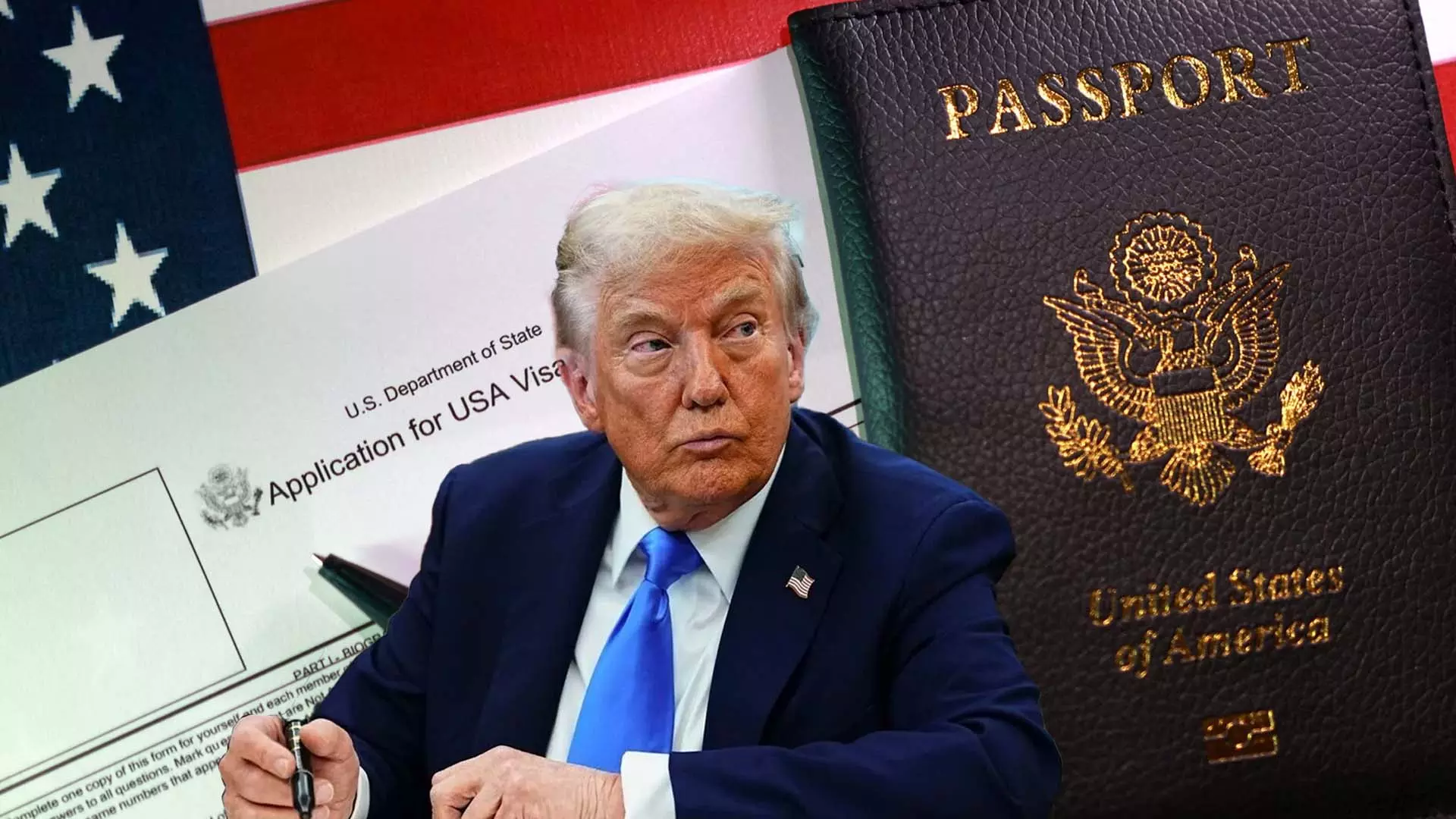
Coalition in San Francisco sues to block Trump’s USD 100,000 H-1B visa fee
Healthcare, religious groups, and educators file a federal lawsuit in US District Court, arguing the 'exorbitant fee' invites corruption and is an illegal power grab

In what appears to be the first major challenge to the new USD 100,000 fee required for H-1B visa applications, a coalition of health care providers, religious groups, university professors, and others filed a federal lawsuit on Friday (October 3) to stop the plan, saying it has “thrown employers, workers, and federal agencies into chaos.”
President Donald Trump signed a proclamation on September 19 requiring the new fee, saying the H-1B visa programme “has been deliberately exploited to replace, rather than supplement, American workers with lower-paid, lower-skilled labour”. The changes were slated to go into effect in 36 hours, which caused panic for employers, who instructed their workers to return to the US immediately.
The lawsuit
The lawsuit, filed in US District Court in San Francisco, said the H-1B programme is a critical pathway to hiring healthcare workers and educators. It drives innovation and economic growth in the US, and allows employers to fill jobs in specialised fields, the lawsuit said.
“Without relief, hospitals will lose medical staff, churches will lose pastors, classrooms will lose teachers, and industries across the country risk losing key innovators,” Democracy Forward Foundation and Justice Action Centre said in a press release. “The suit asks the court to immediately block the order and restore predictability for employers and workers.”
The petitioners argue that “the president has no authority to impose fees or taxes unilaterally to generate revenue, nor can he dictate how those funds are spent”.
The lawsuit says “Defendant Donald J Trump is the President of the United States and is sued in his official capacity”.
Also Read: Will H1-B visa fee hike stifle innovation, spur brain drain from US?
‘Power grab’
They called the new fee “Trump's latest anti-immigration power grab.” Messages seeking comment from the Department of Homeland Security and US Customs and Border Protection, which are named as defendants along with Trump and the State Department, were not immediately returned.
The H-1B visa programme was created by Congress to attract high-skilled workers to fill jobs that tech companies find difficult to fill. About a third of H-1B workers are nurses, teachers, physicians, scholars, priests, and pastors, according to the lawsuit.
Critics say the programme is a pipeline for overseas workers who are often willing to work for as little as USD 60,000 annually, well below the USD 100,000-plus salaries typically paid to US technology workers.
Historically, H-1B visas have been doled out through a lottery. This year, Seattle-based Amazon was by far the top recipient of H-1B visas with more than 10,000 awarded, followed by Tata Consultancy, Microsoft, Apple, and Google. Geographically, California has the highest number of H-1B workers.
Also Read: US defends H-1B visa fee hike, cites data on ‘replacement’ of Americans
‘Invites corruption’
The USD 100,000 fee will discourage the best and brightest minds from bringing life-saving research to the US, said Todd Wolfson, president of the American Association of University Professors.
Mike Miller, Region 6 Director of the United Automobile, Aerospace and Agricultural Implement Workers of America, said Trump's plan “prioritizes wealth and connections over scientific acumen and diligence."
Skye Perryman, president and CEO of Democracy Forward, contends the “exorbitant fee” invites corruption and is illegal. Congress created the programme and Trump can't rewrite it overnight or levy new taxes by executive order, the groups said.
Also Read: H-1B shock meets AI squeeze: How Indian IT may rewrite its playbook
Example of India’s ‘Phoenix Doe’
The lawsuit gives the example of “Plaintiff Phoenix Doe” to drive home its point.
Doe is described as an Indian citizen staying in Northern California. It states that she is a postdoctoral researcher whose cap-exempt H-1B petition has been stopped due to the $100,000 fee.
“Her research focusses on identifying the genetic and epigenetic causes of vision loss due to ageing, diseases such as diabetes, and rare inherited genetic abnormalities of unknown etiology, with the goal of finding new ways to diagnose and treat blinding conditions,” states the lawsuit.
The lawsuit goes on to argue that the university depends on Doe to build and advance its research programme and obtain future funding, with her work expected to continue for the next two years at the minimum.
It says the university has indefinitely paused moving forward with the processing of her application due to the Proclamation by the President.
Also Read: US may exempt doctors from $100,000 H-1B visa fee: Report
The lawsuit further adds that Doe is “suffering debilitating stress and anxiety due to the uncertainty of her position”, which exacerbates the PTSD she suffers from. It says Plaintiff Phoenix Doe will be forced to quit her postdoctoral position in the United States within four months, which would cause her “serious professional and personal harm”.
The suit states that the H-1B visa fee hike has not only disrupted her career but also “stalled important research aimed at advancing the wellbeing of US citizens”.
“Her departure will set back the crucial research she is conducting, disrupting the lab’s ongoing work and ability to secure future research funding, preventing her department from getting any future funding through her, and potentially delaying the availability of treatment for the conditions that are the focus of her research,” says the lawsuit.
The lawsuit is being pursued by Democracy Forward Foundation on behalf of the Global Nurses Force, the United Auto Workers Union, the Justice Action Centre, the American Association of University Professors, and several religious groups.
(With agency inputs)

